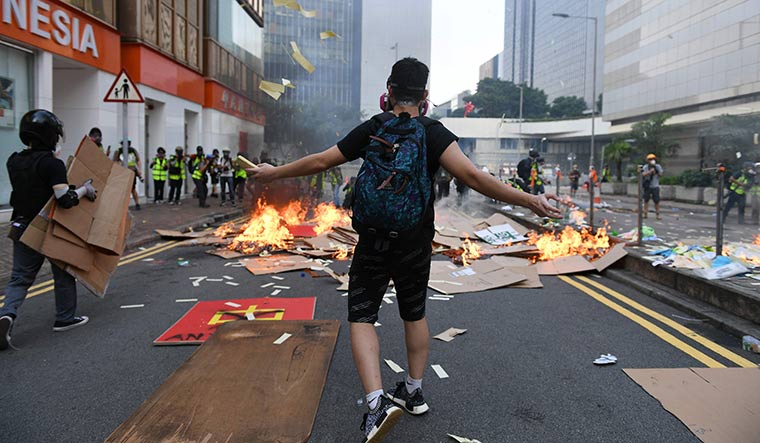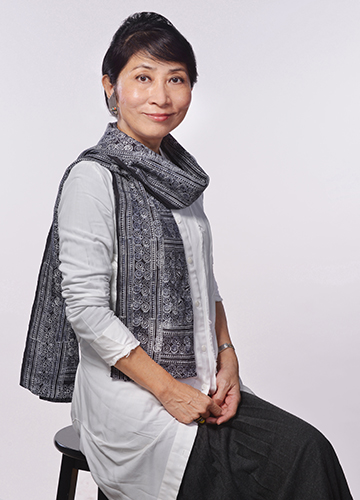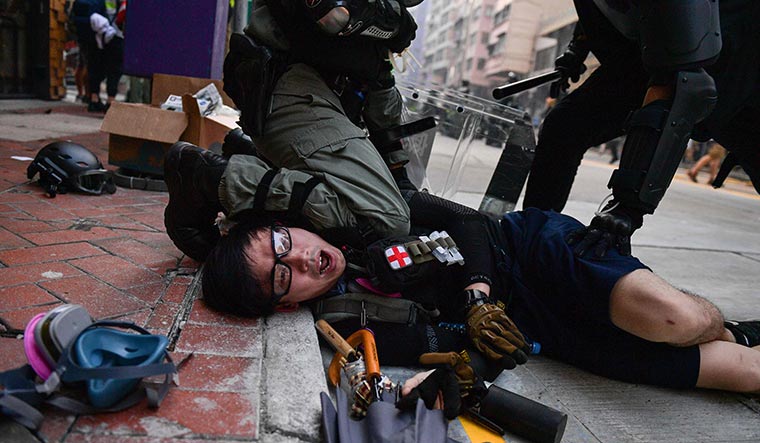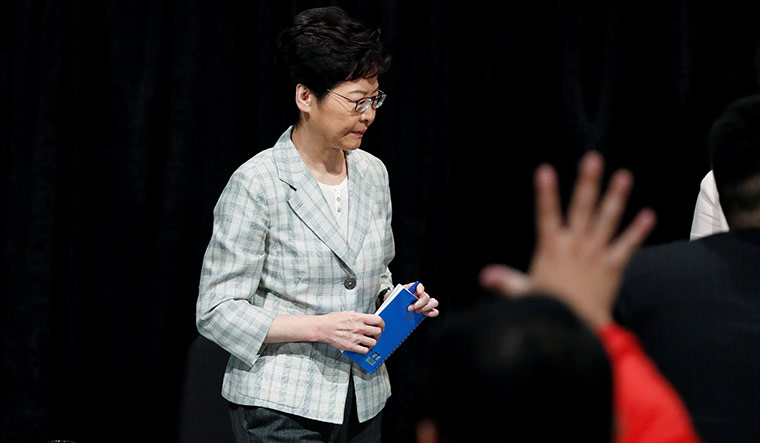On October 1, as China celebrated its 70th national day, tens of thousands of people in Hong Kong were out on the streets, observing a ‘day of grief’. In his national day address, Chinese President Xi Jinping vowed to protect the stability of Hong Kong, which is a special administrative region under China. But the protesters were defiant as they shut down streets, shopping malls and metro stations. In the ensuing clash with the police, many of them were badly injured, including one who got shot in the chest.
Hong Kong has witnessed massive protest demonstrations since June after the local government led by the pro-Chinese Chief Executive Carrie Lam introduced a proposal to allow the extradition of criminal suspects to the mainland. Although Hong Kong is no stranger to anti-government protests, the ongoing crisis has been the most intense since Britain ceded the city state to China in 1997. Protestors have been dodging rubber bullets, tear gas shells and water cannons during months of demonstrations. The wave of protests has now turned into a pro-democracy movement.
Hong Kong, one of the major business hubs in the world, is facing huge financial losses because of the protests. The aviation industry alone has incurred losses worth $76 million (till August) from flight cancellations caused by protests at the busy Hong Kong airport. The retail industry saw sales plummeting by 11.4 per cent.
Protesters want Lam to go. “The government is very obedient to Beijing,” says Claudia Mo, Hong Kong legislator and pro-democracy leader. In an exclusive interview with THE WEEK, Mo says Lam got lots of money to pass the extradition bill and that she refuses to listen to the people.
Edited excerpts:
The police have been using force to disperse protesters.
Beijing initially thought of using its army in Hong Kong, but it cannot afford to use its military to crack down on severe social unrest. So it is using the Hong Kong Police as a prop for the Chinese army, which explains the rampant police brutality. We want a stop to that.
Hong Kong people want Lam to set up an independent probe into the police brutality and to restart the political reform process. We want true democracy—a one man, one vote system without Beijing screening our candidates. We wish for genuinely free elections to choose our chief executive and legislators.
The protests have been going on for four months. What have you gained?
It has achieved a very strong sense of togetherness in Hong Kong. This is the very first time that our conservative, rational protestors are joining forces with our more radical youth. But, on the point of violence, I have to add that Hong Kong Police themselves have admitted sending undercover officers, disguised as protestors, to make arrests. So you will need to raise the question, who are the arsonists and the vandals?
Pro-China citizens have come out waving flags, singing songs. Has this created a divide among citizens?
That is natural. It is a conventional Chinese communist tactic to pit people against people. That is what happens in such revolutions. It is not surprising at all. If you think that it is such a huge divide in Hong Kong now, I would like to differ. Lam conducted a dialogue with the protestors on September 26. Citizens asked very sharp questions, which were embarrassing for the government. It is a clear reflection of what the people want and it says that Lam is a political disaster and has completely failed the people.
What is the people’s impression of Lam as a leader?
She is in a no-win situation. Most people here take her as some sort of a puppet of Beijing. She tries to look at herself as an iron butterfly. But that simply makes her look absurd. Because, it is forced. On the other hand, she refuses to act like a mother of two or that she actually cares for the young. She has pretty much abandoned a generation of people.
Hong Kong has been a special administrative region of China for 22 years. Do people think that their basic rights are in danger?
Absolutely. In 1997, Hong Kong was returned to China. The system here, however, has been gradually, but steadily eating away our freedom and taking Hong Kong directly under China. Forget about ‘one country, two systems’ or autonomy. If you visit Hong Kong, there is a very famous spot called the SAR ferry and at the underpass or the footbridge to the pier, there is a slogan—‘Welcome to Hong Kong!’ It is as if the police and the authorities are trying to say that you have finally arrived in Hong Kong. That sets the protestors’ thinking. Negative events have been taking place on the political front, like arresting young activists arbitrarily and sentencing them to six years for rioting. This is probably the last straw for many youngsters. And how the government makes changes within the system. For example, three years ago they managed to oust three democratic legislators by giving invalid reasons, by saying that they did not take the oath. The young will never forget or forgive that.
Is personal freedom being endangered?
Free press and free speech in Hong Kong are traumatised. Recently, after a youngster shouted at the police asking whether they have lost their conscience, he was beaten up and arrested. Also, one cannot talk against the government online. One is at the risk of losing one’s job. Such things have happened recently, where pilots and air hostesses of Cathay Pacific airlines were asked to leave. HSBC Bank, too, has sacked employees for speaking against the government.
There is chaos at the airport, hurting Hong Kong’s image and scaring tourists away.
The airport protests were meant to help spread the word among the international community about the situation here. That is going to hurt the economy. The government used all possible means to stop this protest. The police would physically stop young people from getting anywhere near the airport. I personally do not agree with airport protests because flights are cancelled, preventing tourists from going back home.
The youth’s mentality is to get hurt. ‘If we burn, you burn with us’, seems to be their attitude. They want to see who suffers more, the elite stakeholders or powerless people like them.
What do you think the legislature will do?
The legislature cannot do much at the moment. It is in recess and will be back in session by mid-October. We will see what happens. But the pro-democracy leaders are not in a majority, which explains why the young are persistent. They feel there is no true representation of the people’s voice.
How do you think this will end? Will the PLA be brought in?
That is difficult to say. Lam sent out a certain message by arresting many, thinking there will not be many left. She is wrong. Protestors are being met by violent incidents, but more are coming out and are not scared. They continue going to school or work. One day things may die down, but the scars will run deep.
I expect Lam to resign. She has indicated that Beijing does not let her resign. But if you want to quit, many reasons, like bad health, can be given. Who can stop you? She should go and we should have a new face. We can start a dialogue between the government and the people and take it from there. Beijing should get rid of the political disaster called Lam.
I don’t think the People’s Liberation Army will be deployed to crack down on social unrest. The stakes are too high. Beijing will receive a lot of flak from the international community.





